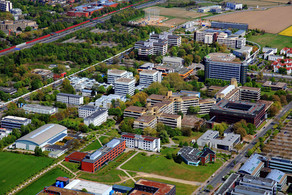UA Ruhr Research Training Group Addresses Regional Disparities
- TU News

Together, researchers and doctoral students from the three UA Ruhr universities – TU Dortmund University, Ruhr University Bochum (RUB) and the University of Duisburg-Essen (coordinator) – are examining regional disparities and how they influence economic policy. Regional differences in living standards, participation and economic structure have often evolved and established themselves over a longer period of time – as education surveys, opinion polls and even election results corroborate. But their origins, consequences and appropriate political responses are questions that are still mostly unanswered. “Particularly in times of rising nationalism and populism, it is important to have a better understanding of these differences and to derive sound policy recommendations from them,” says Professor Tobias Seidel, the RTG’s spokesperson and Professor of Economics at the University of Duisburg-Essen.
“We are using state-of-the-art methods from regional economics to analyze aspects that are politically and economically important – for example the housing market, regional effects of the German minimum wage, or the regional impact of the trade conflict between the US and China,” Seidel explains. The research results show already, for example, that the minimum wage in Germany has affected employment very differently depending on the region, but has also led to an alignment of wage distribution.
Cross-university collaboration in economics
Ten professors are contributing their expertise from various areas of economics, including labor markets, finance and macroeconomics, to the joint research project. On behalf of TU Dortmund University, Professor Lukas Buchheim (Microeconomics), Professor Christiane Hellmanzik (Urban, Regional and International Economics), Professor Philip Jung (Macroeconomics) and Professor Galina Zudenkova (Public Economics) from the university’s Department of Business and Economics are taking part in the project. Each year, five to seven doctoral students join the Research Training Group, which supports them in their academic careers with lectures, research workshops and soft skills seminars. The program prepares graduates for a career in academia, public institutions, the private sector, or national and international bodies such as the International Monetary Fund, the Organisation for Economic Co-operation and Development (OECD) or the World Bank.



